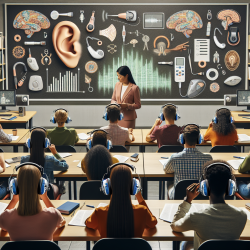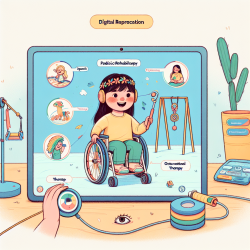Understanding and addressing the unique needs of individuals with hearing impairments in university settings is crucial for promoting an inclusive and accessible learning environment. The research conducted at the University of British Columbia, as detailed in "Hearing Accessibility in a University Setting: Reflections on the Audiological Therapeutic Process," provides valuable insights into the challenges and opportunities in providing effective audiological services in educational contexts.
The study highlights a significant underutilization of rehabilitative services despite the apparent need, suggesting a mismatch between the services offered and the perceived needs or expectations of those with hearing impairments. This gap underscores the importance of adopting a more nuanced understanding of hearing impairment, one that considers the psychological, social, and cultural contexts of individuals.
For practitioners, this research emphasizes the need to:
- Adopt a holistic approach to audiological therapy that goes beyond the technical aspects of hearing loss to include the individual's self-perception and social identity.
- Recognize the stigma associated with visible hearing aids and other assistive devices, which may deter individuals from seeking or fully utilizing available services.
- Engage in active and empathetic listening to understand the unique challenges faced by individuals with hearing impairments in academic settings.
- Collaborate with educational institutions to create an environment that promotes accessibility and inclusivity, such as improved room acoustics and public address systems.
- Encourage further research to explore innovative solutions and interventions that can bridge the gap between the need for and utilization of audiological services.
By implementing these strategies, practitioners can play a pivotal role in enhancing the educational experience for individuals with hearing impairments, ensuring that they have equal opportunities to succeed academically and socially.
For a deeper understanding of the audiological therapeutic process and its implications for practice, I encourage my fellow practitioners to explore the original research paper. This exploration can foster a more comprehensive approach to supporting individuals with hearing impairments in educational settings, ultimately contributing to a more inclusive and accessible learning environment.
To read the original research paper, please follow this link: Hearing Accessibility in a University Setting: Reflections on the Audiological Therapeutic Process.










